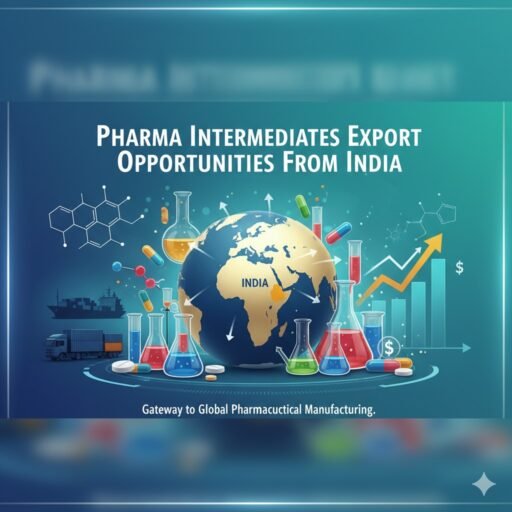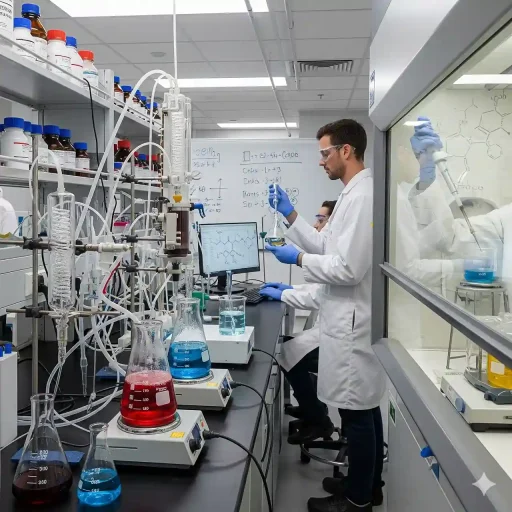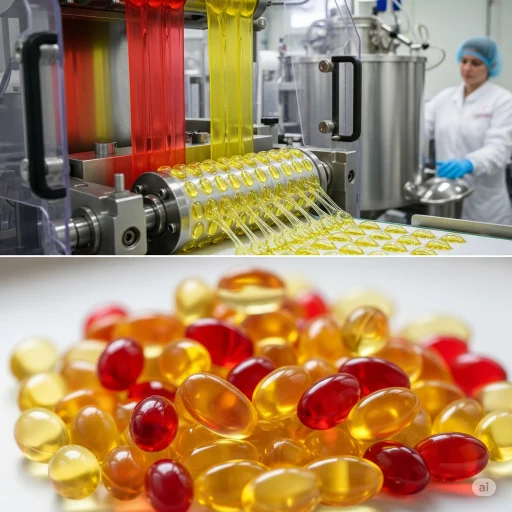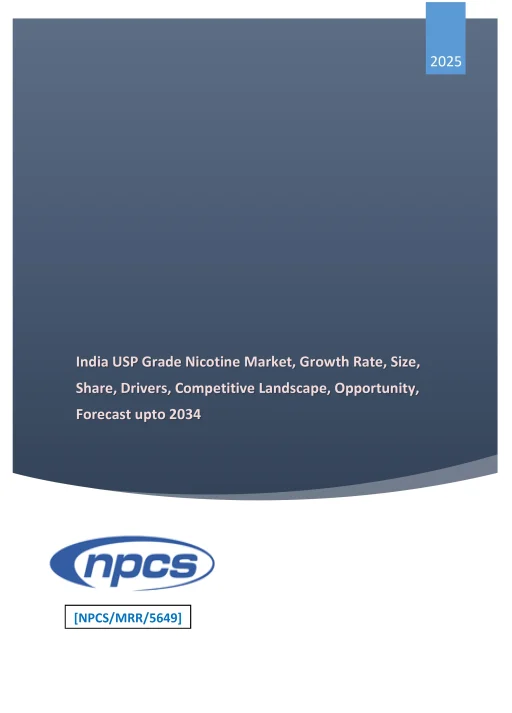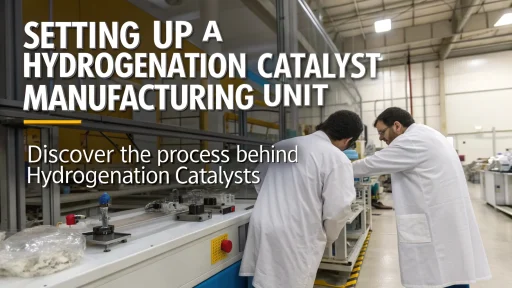The Indian chemical industry is experiencing a major change. With leaving the global demand from China, Indian startups have a very limited window to earn pharmaceutical intermediates and special catalysts.
These two highly valuable segments not only serve the pharmaceutical industry, but also control innovations in sustainable chemical production. The aim of this article is to cover the market outlook, growth drivers, production processes, business opportunities and stories about the success of entrepreneurs.
The aim is to outline how NPCS helps entrepreneurs to transfer their chemical companies to worldwide competing entities.
Read More: Investment Opportunities in API Bulk Drugs & Intermediates Manufacturing Unit
Market Overview: Pharma Intermediates & Special Catalysts
Pharma intermediates are building blocks of API (active pharmaceutical ingredients), while special catalysts control the efficiency of chemical, petrochemical and pharmaceutical productions.
- India, known as the “Pharmacy of the World”, still imports more than 60 percent of intermediates from China and Europe.
- With a global market of specialized catalysts worth $ 20 billion, which grows to 6-7% per year.
- Green and biological catalysts grow in Europe and North America.
- The tightening of regulatory frames around the world serves as fertile land for Indian companies to appear as reliable suppliers.
The collected intermediates and special catalysts of pharmaceuticals will remain for Indian entrepreneurs worth more than billions of dollars.
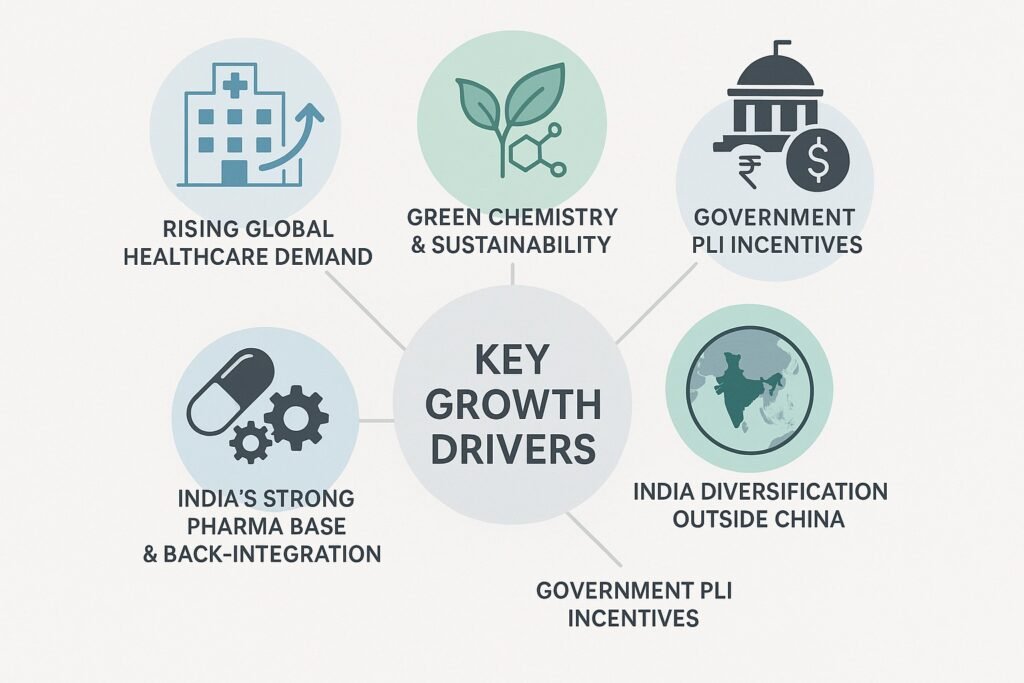
Key growth drivers
Several trends support the rapid growth of this sector:
- Increasing the global demand for health care is reflected in higher API consumption and intermediates.
- The initiatives of green chemistry and sustainability drive the demand for ecological catalysts.
- End the possibilities of diversification outside China for India.
- Incentives in PLI programs from the government support domestic production.
- The strong pharmaceutical base of India allows back -integration into intermediates.
Read Our Project Report: Click Here
The basics of the production process
Pharma intermediates
Pharmaceutical intermediates are the spine of any active pharmaceutical components (API) and are subject to multi -stage organic synthesis for their production. The main processes are:
- Hydrogenation reduction of compounds and offers stable intermediates.
- Halogenation- introduction of halogens into molecules for compounds needed for anti-infectious substances, oncological drugs and cardiovascular API.
- Esterification- process used to synthesize esters that act as intermediates for painkillers, antibiotics and anti-inflammatory drugs.
- Nitration- widely used in the production of aromatic intermediates used for cardiovascular and anti-cancer drugs.
Some standards must be met for their export markets, which are usually controlled by GMP (good production practice) and ISO. Global buyers are of high quality; They require full traceability and regulatory documentation.
At the same time, conventional batch processes are quickly replaced by automation and continuous flow chemistry to allow improved revenues, safety and reproducibility across the board.
Catalysts
Special catalysts are equally important in all reactions under pharmaceutical, petrochemical, polymers and agro-chemicals. Their production generally includes:
Metal impregnation: Includes the storage of expensive and basic metals such as platinum, palladium, cobalt and nickel on supports such as alumina, silica or zeolites.
Advanced techniques: for the creation of high-performance catalysts are commonly used by precipitation, sol-gel methods and ion replacement.
Bio-Pratalyzators: Enzyme catalysts obtained by biotechnological/fermentation have gained great popularity due to their green nature.
Green chemistry uses specialized catalysts for energy savings, waste minimization and better selectivity for products.
Acceptance of these technologies for catalysts based on sustainability and accuracy will provide Indian companies a good competitive advantage in Western Europe, North America and Japan, which have strict environmental adherence.
Pharma intermediates and special catalysts require investment in research and development, qualified workforce, quality control and regulatory certification if they are to compete around the world at the same stage.
Read Our Book: Click Here
Opportunities for Indian entrepreneurs
In principle, this combined sector of intermediates and special catalysts of pharmaceutical pharmaceutical pharmaceutical pharmaceuticals is a high -rise and export options:
Setting the intermediate plants
More than 60% of the intermediates that India uses from China. Startups focused on the production of intermediates in India will help reduce this addiction. The initiative of PLI and preparation in India will help strengthen it.
Contractual production for pharmaceutical owners
The environment for domestic production of contracts with constant demand through custody with domestic and global pharmaceutical companies. Through the long -term and profitable relationship supplying intermediates or catalysts as contractual manufacturers, startups cost to gain huge benefits.
Investment Opportunities in Drugs, Medicines, Active Pharma Ingredients (APIs) Industry
Ecological and biological catalysts
Sustainable development leads a global industry towards green catalysts and with an increase in demand in Europe, US and Japan there is the existence of this market. Startups working on enzymatic and recyclable catalysts should be able to provide these premium markets.
Exports of developing market
Africa, Southeast Asia and Latin America are rapidly developing pharmaceutical nodes. It is quite cheap for Indian startups to export Pharma intermediates to these markets as an input model.
The actual development of the catalyst
When startups develop catalysts for a specific industrial process, such as the polymerization or hydrogenation process, it gives them a unique position to control high margins on the global market.
Recycling and regeneration of catalyst
The catalyst recycling is now becoming profitable and sustainable. Restoring the spent catalyst and its regeneration will reduce costs and provide good attraction for investors with ESG knowledge.
Agrochemical intermediates
Startups focused on both areas create dual income options, as many intermediates of pharmaceuticals double as agrochemical synthesis paths.
Read More: Empowering India’s Growth Through Pharmaceutical Intermediates & API Production
How NPCs can help you
NPCS provides expert advice for entrepreneurs starting new businesses in the chemical and pharmaceutical industries.
Techno-economic feasibility reports (DPRS) Compiled NPCs are inclusive and detailed and cover areas such as market research and demand analysis, production processes together with development diagrams, machine and raw materials, financial projections with profitability knowledge, as well as scalability and compliance.
As a result, the entrepreneur is led to clarity and trust in raising funds for the company through investment and building sustainable enterprises around the world.
Inspired by Indian business legends
As the vision controls the global success of the most successful entrepreneurs of India:
- Mukesh Ambani diversified relying on the petrochemical society to be a telecommunications and energy entity.
- Ratan Tata, the global expansion of the Tata group was ethical and responsible.
- Kiran Mazumdar-Shaw put Biocon in a society that then became a global leader in biotechnology.
- Dilip Shanghvi has transformed Sun Pharma into one of the world’s leading generic companies.
- Pankaj patel, zydus, used unique medium -sized skills to create a vaccine and API giant.
These are all examples that show bold decisions, innovations and resistance can convert startups to global giants.
Find the Best Idea for Yourself With our Startup Selector Tool
Conclusion
Pharmaceuticals and special catalysts are in connection with the global needs of health care and sustainable chemistry. The potential for Indian entrepreneurs is stunning: businesses that are profitable, scalable and export can be created.
No one should forget this prospect through technologies, compliance and environmental innovations. It should also ensure that India becomes a global production center rather than a lesser dependency base.
With the expertise and leadership of NPCs, today’s entrepreneurs are involved in converting problems into opportunities at the next stage of building globally prepared chemical businesses.
FAQS
Q1. Why are the intermediate products important in pharmaceuticals?
They are considered to be the most important raw materials that create synthesized APIs, which are at the end of the spine production of pharmaceutical drugs.
Q2. What is the size of the special catalyst market?
It is estimated that the global market is worth $ 20 billion and is growing to about 6-7% CAGR.
Q3. Can Indian startups export intermediates and catalysts?
Yes, Indian startups can focus their target markets in Africa, Southeast Asia, Europe and North America.
Q4. Which government subsidies are provided?
India has PLI programs, advantages in India and incentives for entrepreneurs through make in India.
Q5. How can NPC help entrepreneurs?
NPCS is preparing comprehensive DPR, financial modeling and technical advice on creating companies that are not only profitable but also compatible.

